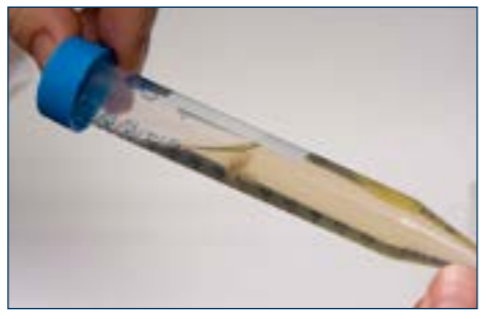



Hy-Line International identifies genetic control of HPAI resistance
Livability is a critical trait for today’s egg producers. Profitability depends upon the long-term survival of laying hens in the face of multiple environmental challenges. Following the devastating Highly Pathogenic Avian Influenza (HPAI) outbreak in the USA egg industry in 2015, Hy-Line International conducted cooperative research with Iowa State University in the USA, University of Edinburgh in Scotland, and Warsaw University of Life Sciences in Poland, with funding from the Egg Industry Center.
This research discovered the potential to identify hens with the genetic predisposition to survive HPAI. Researchers found multiple genetic components that influence the survival of hens following an HPAI infection1. Additionally, it uncovered possible specific immune-related genes2. Genetic tests could correctly differentiate between survivors and controls in up to 80 percent of samples. The ability to identify birds that are more likely to survive without a need to expose them to disease challenge is one advantage of genomic testing.
Blood samples for DNA testing were obtained from the rare HPAI survivors in commercial production houses. DNA variation from these exceptional birds was compared with DNA from age and genetics matched controls from non-affected flocks. Genetic variation at 600,000 locations within the chicken DNA was examined and differences between survivors and controls were found3.

Hy-Line continues to drive improvements in understanding disease resistance with the goal of lessening the economic impact of diseases and improving animal well-being. The breeding goal includes identification of layers that are genetically able to survive diverse challenges, recover more quickly, and continue to produce at high performance levels.
“Health and resilience are at the foundation of all Hy-Line layers,” said Dr Danny Lubritz, Director of Research and Development for Hy-Line International. “For the benefit of the commercial egg producer, we are compelled to investigate the genetic influence for HPAI, as well as Newcastle Disease4, fowl typhoid5, Marek’s Disease6, and other diseases.”
Improving disease resistance requires long-term dedication. All improvements must be a careful balance of selection for multiple performance and quality traits. The comprehensive breeding program at Hy-Line International encompasses all aspects of bird health, well-being and performance, resulting in a well-balanced bird, capable of performing in multiple commercial environments, with high livability that can produce high-quality eggs with great efficiency
| References | ||||
|---|---|---|---|---|
| 1. Wolc et al | ||||
| (2018) | . Gen Sel Evol | 50:21 | ||
| 2. Drobik-Czwarno et al | ||||
| (2018) | . Poultry Science | 97:3421-3428 | ||
| 3. Drobik-Czwarno et al | ||||
| (2017) | . Animal | 12:1363 | ||
| 4. Rowland et al | ||||
| (2018) | . Frontiers in Genetics | 9:326 | ||
| 5. Psifidi et al | ||||
| (2018) | . Frontiers in Genetics | 9:519 | ||
| 6. Fulton et al | ||||
| (2013) | . Diseases | 57:519-522 |








